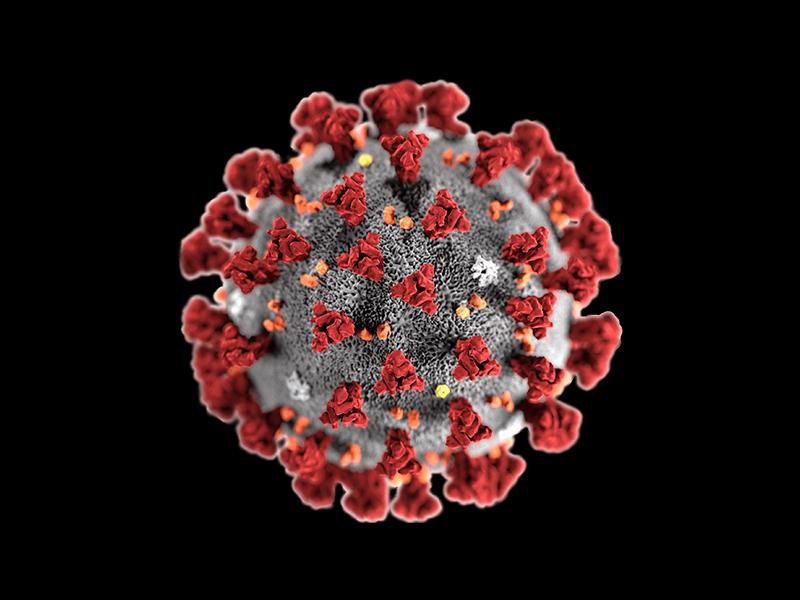Blaise Aboh, Lead Partner, Orodata Science(ODS) writes on the grim reality of the post-COVID-19 pandemic period.
As of 8th April, the global Coronavirus cases according to Worldometer stand at 1,432,409, the number of deaths at 82,114, number of recoveries at 302,303. Active cases are 1,047,992, that is, patients that are currently infected. 95 per cent of the active cases ( 1,000,077) are in mild conditions while 47,915 (5 per cent) are in serious or critical conditions.
Closed cases, that is, cases that had an outcome stand at 384,417. Of this number, 79 per cent (302,303) recovered and were discharged. 82,114 (21 per cent) of the closed cases were the deaths recorded as I mentioned earlier. As of this morning, the United States has a record high of 400,540 number of cases followed by Spain 141,542, Italy 135,586, France 109,069, Germany 107,663, China 81,802, Iran 62,589 and the United Kingdom with 55,242 cases respectively.
Italy has the highest number of recorded deaths with 17,127 followed by Spain with 14,045, United States 12,857 and France at 10,328. China has the highest number of recovered cases, standing at 77,279, followed by Spain at 43,208, Germany 36,081, Iran 27,039, Italy 24,392, United States 21,711, and France at 19,377. But these are not the only losses the human race is facing.
Yesterday, according to the Director-General of the International Labour Organization (ILO), the COVID-19 crisis is expected to wipe out 6.7 per cent of working hours globally in the second quarter of 2020 — equivalent to 195 million full-time workers. With this loss alone, this far exceeds the effects of the 2008–9 financial crisis.
Tourism, hospitality and travel are taking huge hits. The International Air Transportation Association (IATA) stated that the industry would lose about US$113 billion. And when the loss to tourism industry due to cancelled flights, cancelled hotel bookings, and cancelled local and international events are also factored, the loss climbs to US$252 billion. The Global film industry is expected to also lose upwards of $5 billion in lower box office sales. Already, about $79 billion has been wiped off the private fintech market.
Countries and regulatory organizations have announced fiscal measures to cushion the economic impacts of the pandemic; Japan ($9.6 billion, or 0.19 per cent of GDP), South Korea ($9.2 billion, 0.56 per cent of GDP), and Italy ($4.1 billion, 0.20 per cent of GDP). The IMF and World Bank announced the availability of $50 billion and $12 billion in financing, respectively, to support low income and emerging market economies’.
While the path the virus threads determines the sufficiency and effectiveness of these interventions on the economy, there are other losses, aftermaths or futures that experts are barely forecasting;
Law Suits. Post-Coronavirus, who bears the consequences for these deaths? Blood must have blood. It is likely that legal warfare would commence as families who have lost loved ones to the virus would sue hospitals for failure to provide proper protective equipment for staff, or letting their loved ones of age die by triage over a younger person due to scarcity of ventilators. Government and even tourism companies are already being sued for gross negligence and not taking necessary precautions to prevent the transmission and spread of the virus. In Austria, about 2,500 skiers have so far joined a class-action lawsuit over the way authorities managed a Coronavirus outbreak at a resort in the province of Tyrol.
Post Traumatic Stress Disorders. Post Covid19, families would have to deal with the reality that their loved ones are no more. This is a stress they will need therapy for. More so, doctors, nurses, many other health-related practitioners would all need PTSD treatments. The unexpected increase in the spread of the virus had hospitals overflowing and more patients admitted to ICU had health professionals work longer hours, straining their physical and mental health. At most hospitals been overrun by patients, it is now one support worker per patient due to the critical nature of the infection.
Segregation. The true face of segregation in American states has been exposed by the Coronavirus. A Post analysis of available data and census demographics has revealed that counties with the black majority have three times the rate of infections and almost six times the rate of deaths when compared to counties where white residents are in the majority. Civil society organizations are already demanding that the FG release daily race and ethnicity data on Coronavirus testing, patients and their health outcomes to ensure that African Americans and other people of color have equal access to testing and treatment.
Stigmatization. In a video report by online news platform Sahara Reporters yesterday, while the world has adopted various measures to combat Coronavirus, Chinese authorities are beginning to eject Africans from their homes and hotels over claims that they were importing the virus into the country. In a CNN report, A 23-year-old Singapore man of Chinese ethnicity schooling in London was attacked by a group of people on Oxford Street who were chanting “we don’t want your Coronavirus in our country’. This is a new face of xenophobic attacks that the world would face post Covid19. It will touch everybody.
Mass protests and civic unrest. Like governments across Europe, the French government downplayed the disease and deliberately withheld critical information from the public according to the World Socialist. Now, medical professionals in their hundreds are filing a lawsuit charging top officials with criminal negligence. There is growing citizen unrest which is likely to erupt to a full-blown physical protest soon as things get back to normal because citizens across the world are would hold their governments responsible for dilapidated health care infrastructure due to decades of corruption, fiscal irresponsibility, and poor public service delivery and initial political tardiness weeks to the pandemic spread despite having information early.
General Mourning. Due to the infectious nature of the virus and compulsory social distancing, the dead have been buried without proper burials or funeral gatherings, and their families have been forced to mourn from a distance. People are having to use video conferencing apps to say their last goodbyes to dying relatives as hospitals are not allowing visits to curb the spread of the virus. Post Covid19, it will not be business as usual, and life will not automatically return to normal. People will come out in mass to mourn, and they will need a lot of time to do it.






